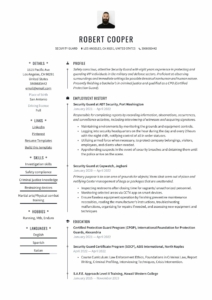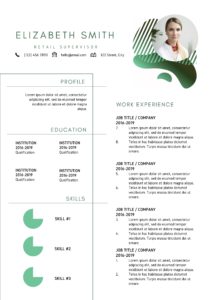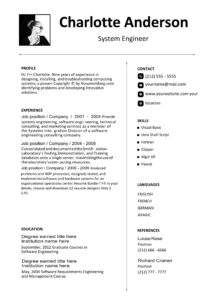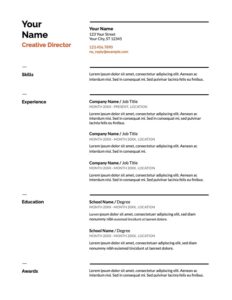“Your objective is to prove why they should hire you, never give them a reason to turn you away. “
One of the most common questions asked in job interviews is, “What is your greatest weakness?” It's a tricky question that can catch you off guard and leave you scrambling for a response. However, with a little preparation, you can turn this potential weakness into a strength.
Most people have no idea how to successfully answer what their greatest weakness is. For this reason, some employers love to pose it. Unfortunately, most people offer a terrible example of their worst attributes. It's a tricky question.
The common mistake most job seekers make is to say their greatest weakness is “working too hard” or “accepting too much responsibility”, or commonly use used: “I'm a perfectionist”.
This was my best answer during my first interview at 15 years old. I thought it was incredibly clever.
Once I was promoted into management and began conducting interviews with other prospects, I realized most people answer this question the same way. This is called “humblebragging” and according to a study conducted by Harvard, 70% of hiring managers only offer employment to a candidate who cites a legitimate weakness in their response.
During my time as a hiring manager, I only heard one remarkable response, and that was: “fried food.” The comment was so refreshing and so honest that the person was hired immediately. The worst answer is “nothing.” This is the second most common mistake.
The interview was over in my mind the moment the person gave this response. It is unimaginative and arrogant. It exhibits a lack of ability or willingness to follow a simple direction. At worst, it is as disrespectful as saying “I don’t know” to any question.
What you can read in this article
What the Employer Really Wants To Know
The first step in successfully defining your greatest weakness is to understand why the question is asked.
Employers want to know how you will respond under pressure and if you are qualified for the job. They want to know if you are self-aware. Most importantly, they do not really want to know what your genuine weakness is. Rather, they want to know what you are doing to improve your weakest attribute.
It’s rather an opportunity to show the employer how you can learn from constructive criticism, how you’re willing to work on self-growth when you face challenges, and how you can pick yourself up and dust yourself off when you falter. Any employer counts those things as strengths.
How To Answer, “What is Your Greatest Weakness?”
There are multiple approaches to answering this question during an interview.
- Mention skills that are Non-Critical to the job
- Speak about a weak skill you have improved on
- Turn a negative into a positive
1. Highlight Non-Critical Skills
We are going to mention a skill we are not the best at, that will not hurt your qualifications for the job much at all. Analyze key skills and strengths that are critical and required for the job. Now you have identified these key skills identified, you can choose the skills you are lacking, and that are certainly not essential skills for the position.
Example
For instance, if you are interviewing for a project management position, you could mention that attention to detail or public speaking is not one of your strongest skills. Emphasize your ability to see the big picture and prioritize tasks, and provide a specific example that showcases these strengths.
Similarly, if you are applying for a sales role, you could highlight a skill, such as time management or teamwork, that is not a required for the job, as skills you are working on.
2. Highlight Abilities that you have Improved
Another way of answering about your weaknesses is to bring up abilities that you have improved on and made progress in already. Mention previous jobs or other experiences in which you had certain shortcomings that you have worked on and improved.
If you're having trouble thinking of a specific weakness example, read through old self-assessments and performance reviews. They are a great source of inspiration.
This way you demonstrate right away that you are self-aware and working on your self-growth!
This might trigger the following interview questions already, which could be about your strengths, or you are asked for more examples.
Also with this method, make sure to mention skills that are not essential for the job you are interviewing for. We do not want to, unintentionally, raise any doubt about our qualifications here!
Example
"One area I improved on in the past is my public speaking skills. As a software engineer who primarily works behind the scenes, I don't have many opportunities to give presentations. However, since I occasionally need to explain technical concepts to non-technical stakeholders, I realized that I needed to improve my public speaking abilities. I took a public speaking course in my local city. It enhanced my confidence and delivery when presenting, and now, when I attend meetings, I have a much better understanding of how to communicate technical ideas effectively. This course also helped me build upon the skills I use to "sell" my ideas to my team."
3. Turn a negative into a positive

The final step in discussing your weakness is to spin it into a positive answer.
Instead of confessing your habitual tardiness, say that over the last year, you’ve set goals for yourself to organize your calendar more effectively.
Discuss in detail the steps you’ve taken to resolve this issue. Describe how you implemented your metrics to keep yourself on track without your supervisor having to step in. Show your initiative. Display how proactive you are when it comes to problem-solving.
The interviewer understands that we all have weaknesses, but using this method will prove that you are capable of self-discipline and personal development.
Your success in answering “What is Your Greatest Weakness” depends on the level of creativity and thought you put behind your response. Remember why the question is asked. Have a few good examples. Don’t forget to cite how you are improving these skills, and finally, turn it into a positive.
Your objective is to prove why they should hire you, never give them a reason to turn you away.
Ways you can improve yourself to address a weakness?:
- Take a class or get training.
- Discover tools, such as apps, to track your time, schedule breaks or collaborate more smoothly.
- Work with a mentor.
- Engage in volunteer work to build a skill.
- Join professional groups or industry associations.
- Consult an expert or person with strength in your area weakness
What Not to Say

The next step in discussing your weakness is knowing what to say.
Are you late all the time? Don’t say this. Instead, state that you used to be excellent at accepting large workloads, but weren’t the best at managing time.
If you have a habit of drinking in excess, stealing, or not showing up for a job; find something else to offer.
This isn’t a test of your objective integrity. A brutally honest answer will not earn you any points. You should neither divulge personal information about your romantic troubles or your personal life.
Remember step one. You must answer this question by first understanding why it is asked.
Oh, and please keep in mind the interviewer might probably not be retarded and you can't get away with ‘being a perfectionist' or that you can hardly say no.
Be Honest and Proactive In Your Answering
Interview Weaknesses Best Answer Examples
1. “Focussing on the details”:
Example Answer:
“I would say my greatest weakness is that I tend to focus too much on the details when working on a project. I have been making efforts to improve in this area by regularly reflecting on my work and shifting my focus back to the bigger picture. This allows me to maintain high-quality standards while also ensuring that I stay productive and don't hinder the team's ability to meet deadlines.”
Being meticulous about the specifics of a project can sometimes be viewed as a weakness if it leads to spending excessive time on the details. By acknowledging this weakness, you demonstrate to your interviewer your ability to prevent minor errors.
When discussing this weakness, emphasize the steps you have taken to address it by incorporating a broader perspective. Although some employers might not appreciate an overly detail-focused employee, a candidate who prioritizes quality and balances it with productivity can be a valuable asset to the organization.
2. “Difficulty Saying No”
Example Answer:
“My greatest weakness is that I sometimes have trouble declining requests and end up overloading myself. In the past, this has led to feelings of stress and burnout. To overcome this, I now utilize a project management tool which helps me to keep track of my workload at any given moment and determine if I have the capacity to take on more.”
Balancing the workload and supporting colleagues on projects requires a delicate touch. To an employer, someone who takes on all requests may appear dedicated and eager, but it could also indicate a lack of self-awareness and the need for assistance or extensions in meeting deadlines.
If you struggle to decline requests, highlight how you are working to better manage your tasks by setting more realistic expectations for yourself and others.
3. “Impatience”
Example Answer:
Example Answer:
“My greatest weakness is my impatience when projects extend beyond their deadline. I highly value punctuality and become uncomfortable when work is not completed on schedule. To combat this, I've started being more proactive and monitoring my own behavior to ensure that I remain motivational and work towards improving efficiency.”
Showing frustration or stress about missed deadlines may be perceived as a weakness, however, employers value employees who prioritize meeting deadlines and keeping projects on schedule.
If you're using this as your interview answer, emphasize your appreciation for timely completion of tasks and steps you are taking to improve your own processes and promote efficiency.
4. “Talkative”
Example Answer:
“I have a tendency to be talkative and enjoy building relationships with anyone in the company. While this can be a great team-building skill, I've realized that it spends too much time and also become a distraction to others. I've since learned that there are alternative ways to connect with my coworkers and build personal relationships with them.“
This response is effective as it showcases your acknowledgment of the potential impact of your tendency to engage in lengthy conversations with coworkers. Admitting to weakness can be difficult, but this demonstrates your awareness and commitment to finding a balance between building relationships with coworkers and maintaining a productive work environment.
5. “Asking for assistance”
Example Answer:
“I have always been independent and focused on completing tasks quickly, which has made it difficult for me to reach out for help. However, I have realized that asking for assistance can be incredibly beneficial for me and the organization. It not only helps me when I am struggling with my workload but also allows me to leverage the expertise of those around me to improve the quality of my work.”
In the workplace, asking for help is a crucial capability, whether it's because you lack proficiency in a particular area or you're feeling overwhelmed by the workload. The ability to recognize when and how to ask for help demonstrates strong self-awareness and enables the organization to address inefficiencies before they arise.
While being self-reliant and hardworking are desirable traits, seeking assistance can also showcase that you prioritize the team's success. If you acknowledge that asking for help is not your strongest suit, explain how you recognize its importance and the steps you've taken to enhance this skill.
Although it remains a challenge, I am actively working on asking for help more often. This has allowed me to produce better results and become a more valuable member of the team.”
6. “Impatience”
Example Answer:
7. “Time management”
Example Answer:
“In the past, despite always meeting my deadlines, I struggled with procrastination, leading to extended work hours as deadlines approached. Recognizing the need to address this challenge, I enrolled in courses on project and time management. These classes taught me how to structure my days and break down larger tasks into smaller, more manageable parts. Now, I immediately create a plan when assigned a new project, and regularly complete my work ahead of schedule.”
8. “Work-Life Balance”
Example Answer:
“I initially faced difficulties in balancing work and personal life, after starting to work remotely during the pandemic. This led to an increase in stress levels, causing my productivity to plummet and let me to losing my drive and motivating to give my everything. To address this issue, the I introduced more structure to my day by establishing a clear start and end time to work. As a result, I have noticed improvements in my focus and joy during work hours.”
It shows you are well aware of your limits and the border of burning yourself out. Showing that you can find the right balance, stay healthy and stay productive while keeping a focus on your job. Even if that's remote from the office.
9. “Timid”
Example Answer:
“I used to struggle with giving constructive feedback to colleagues or superiors, as I can be afraid of offending others. However, I had a turning point in my previous job when a coworker asked me to review and provide suggestions for improvement on his work. Through that experience, I learned that providing feedback can be both beneficial and compassionate if approached with care and empathy. As a result, I have become more confident in providing feedback, staying sympathetic but incorporating empathy to make it productive and considerate.”
This response showcases your ability to transform timidity into strength. Timidity can often be seen as a drawback, particularly in roles that require providing feedback. Nevertheless, you've shown how being timid can be leveraged as a positive quality and source of feedback, by focusing on your own strength: empathy.
10. “Teamwork”
Example Answer:
“I tend to be overly self-reliant, which makes it challenging for me to collaborate with others in a team setting. For this reason, I have sought out positions that allow me to work independently. However, I understand the importance of teamwork and have taken steps to improve my ability to work effectively with others. I have participated in team-building workshops to gain a better understanding of trust and communication within a team. Although I still prefer to work independently, I am aware that it's important to be able to rely on my colleagues and reach out for help when needed.”
This response is good since it highlights your lack of teamwork environments, which will not impact your job performance since the role you are interviewing for does not require significant collaboration. Moreover, your willingness to improve and overcome this weakness showcases your determination and growth-oriented mindset, which are crucial attributes in any workplace.
Example Weaknesses & Skills
As you know, it's all about how you present a weakness, not about the weakness itself. It is about you being aware, able, and willing to improve yourself.
Therefore, it's important to still be truthful and honest. Do not underestimate an interviewer, either. They know when they are led around the bush, and you are not open, honest, and proactive.
To help you identify your own weaknesses, we compiled a list of possibilities. Be sure to not handle essential and critical skills for the job, in your answer about your weaknesses.
- Nervousness about public speaking
- Hesitancy about delegating tasks
- Discomfort taking big risks
- Impatience with bureaucracies
- Being too honest
- Lacking Tactfulness
- Sensitivity
- Shyness
- Taking on too much responsibility/projects
- Multitasking
- Poor writing skills
- Humor
- Organization
- Spontaneity
- Too-self-critical
- Soft- or hardware experience
- Foreign languages
- Struggle to give feedback
- Work/life balance
- Competitive
- Taking criticism to personal




